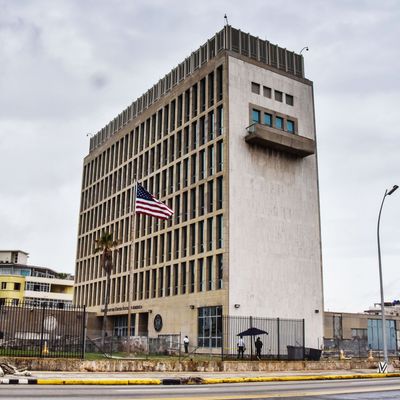
The U.S. diplomats who began experiencing headaches, dizziness, and hearing loss after what was initially called a “sonic attack” suffer from the same symptoms as someone who has lived through a car crash or a blast in a war zone, doctors said in a new report published Thursday. But there were no crashes or blasts.
“It’s like a concussion without a concussion,” Randel Swanson, D.O., Ph.D., said in the Journal of the American Medical Association (JAMA). Swanson is one of several University of Pennsylvania doctors who examined 21 of 24 U.S. diplomats who reported symptoms beginning in late 2016. On Thursday, their report was was published in JAMA and it provides the most comprehensive look yet at what happened to victims after they experienced “auditory and sensory phenomena in their homes or hotel rooms.”
The victims “appeared to have sustained injury to widespread brain networks,” the doctors wrote. Among the many symptoms they reported were difficulty with memory, concentration, and sleeping, along with impaired eyesight and hearing. Some complained of cognitive issues, including feeling “mentally foggy,” and some said they were more irritable and nervous than before they fell ill.
Despite their close study of the attacks’ victims, the doctors appear even less sure now of the cause than when the incident was first reported. Most victims, the study says, reported hearing sounds variously described as “buzzing,” “grinding metal,” “piercing squeals,” and “humming.”
“Affected individuals described the sounds as directional, intensely loud, and of pure and sustained tonality,” the report says. But while most said it was high-pitched, a few said it was low-pitched. Others still described it more as a pressure than a sound.
As for the cause, doctors appear no closer to finding one, despite their extensive study of the victims. And as one suggests in JAMA, by paying so much attention to what the victims heard, doctors may even be looking in the wrong place. “We actually don’t think it was the audible sound that was the problem,” Dr Douglas Smith, who co-authored the study said. “We think the audible sound was a consequence of the exposure, because audible sound is not known to cause brain injury.”





























